Id Rather Be Dead
Than Be a Girl
Implications of Whitehead, Whorf, and Piaget
for Inclusive Language in Religious Education
John Marcus Sweeney

Copyright 2009 by
University Press of America, Inc.
4501 Forbes Boulevard
Suite 200
Lanham, Maryland 20706
UPA Acquisitions Department (301) 459-3366
Estover Road
Plymouth PL6 7PY
United Kingdom
All rights reserved
Printed in the United States of America
British Library Cataloging in Publication Information Available
Library of Congress Control Number: 2009934251
ISBN-13: 978-0-7618-4872-1 (clothbound : alk. paper)
ISBN-10: 0-7618-4872-X (clothbound : alk. paper)
ISBN-13: 978-0-7618-4873-8 (paperback : alk. paper)
ISBN-10: 0-7618-4873-8 (paperback : alk. paper)
eISBN-13: 978-0-7618-4874-5
eISBN-10: 0-7618-4874-6
 The paper used in this publication meets the minimum
The paper used in this publication meets the minimum
requirements of American National Standard for Information
SciencesPermanence of Paper for Printed Library Materials,
ANSI Z39.48-1992
Dedication
From the past for all of their support and their examples
Ruth
Beverley
Into the present for their encouragement and love
Sharon
William
Charles
Mary
Scott
Towards the future
Samantha Hope, Owen Frederick, and Elliott Bradley
may their world become more just
Copyright Permissions
Reprinted with permission of Beacon Press, Boston from The Journey is Home by Nelle Morton. Copyright 1985 by Beacon Press. All rights reserved.
Reprinted with permission of Cambridge University Press from Modes of Thought by Alfred North Whitehead. Copyright 1938 by the Macmillan Company. Copyright renewed in 1966 by T. North. All rights reserved for the World English market.
Reprinted with permission of MIT Press from Language, Thought, and Reality: Selected Writings of Benjamin Lee Whorf, by Benjamin Lee Whorf. Edited by John B. Carroll. Copyright 1956 by MIT Press. All rights reserved.
Reprinted with permission of Simon & Schuster, Inc., from The Aims of Education and Other Essay by Alfred North Whitehead. Copyright 1929 by the Macmillan Company. Copyright renewed 1957 by Evelyn Whitehead. All rights reserved.
Reprinted with permission of Simon & Schuster, Inc., from Modes of Thought by Alfred North Whitehead. Copyright 1938 by the Macmillan Company. Copyright renewed 1966 by T. North. All rights reserved for the U.S. and Canadian markets.
Reprinted with permission of Simon & Schuster, Inc., from Process and Reality: An Essay in Cosmology by Alfred North Whitehead. Copyright 1929 by the Macmillan Company. Copyright renewed 1957 by Evelyn Whitehead. Corrected Edition edited by David Ray Griffin and Donald W. Sherburne. Copyright 1976 by The Free Press, a division of Simon & Schuster, Inc. All rights reserved.
Contents
Preface
I have been interested in life, the universe, and everything (with apologies to Douglas Adams, Hitchhikers Guide to the Galaxy) for almost 40 years now, this interest beginning in my undergraduate days. During my senior year in college, I encountered the writings of Alfred North Whitehead, a philosopher truly interested in life, the universe, and everything. Whitehead had begun the process (no pun intended) of developing a metaphysics for all occasions (pun intended), a truly descriptive cosmological story. More amazing was Whiteheads insistence that all the evidence be considered, that the system be changed as needed in the quest for metaphysical explanation, and that participation in the ongoing struggle to deal with life, the universe, and everything is a worthwhile endeavor. Even those philosophers and philosophical systems at odds with Whiteheadian thought should be explainable by, or within, a philosophy of organism.
Whitehead did not try to protect his proposals from alteration. Rather, Whitehead encouraged expansion of the system and exploration of the various possibilities as they occur. Even mistakes and disagreements need to be accounted for in a truly metaphysical system, and changes in this system are encouraged. For example, there are Whiteheadian theodicies and classical theodicies; in a descriptive cosmology, as the philosophy of organism hopes to be, both kinds of theodicies, as well as the discrepancies between the two approaches, should be explainable.
The Whiteheadian approach stands in stark contrast to the vast majority of the other thinkers and systems that I have studied. These thinkers and systems, especially but not only in the Anglo-American analytic philosophical tradition, prefer to explain away data that does not fit into their system (such as the placebo effect), or to caricature and then dismiss that which was misrepresented (as I have heard done regarding the Sapir-Whorf Hypothesis), or to ignore information they consider to be trivial (such as evidence regarding paranormal experience).
Another unacknowledged difficulty many thinkers regularly encounter involves their willingness to make exceptions or to otherwise build in special cases, after they have said no exceptions or no special cases. For example, Jean Calvin claimed he was going to be thoroughly logical, yet most of the time when he got himself into a logical corner he claimed the solution was to be found in the mystery of God. Both Sigmund Freud and B. F. Skinner have written as if human freedom were a real possibility, but in following their assumptions and views, one will find that freedom will need to be some sort of very special case; freedom is not inherent in either system. A Whiteheadian approach suggests that freedom, not just human freedom, is part of the cosmic process from the very beginning and is present in the very foundations of the process. Accordingly, neither a special case nor an exception to the metaphysical rules is needed.
Since I began studying philosophy, theology, psychology, and education, I have consistently found process thought in general, and Whiteheads philosophy of organism in particular, to be the best approach to use in attempting to explain life, the universe, and everything.
This study, then, is greatly influenced both by the philosophy of organism proposed Alfred North Whitehead and by the spirit towards philosophical investigation that is expressed in Whiteheadian thought. By the spirit of Whiteheads philosophy, I mean primarily the attitude towards speculative philosophy. Since Whiteheads philosophy of organism serves as the background for all the chapters in this study, presenting more information on the spirit of this philosophy is appropriate.
Speculative Philosophy is the endeavour to frame a coherent, logical, necessary system of general ideas in terms of which every element of our experience can be interpreted (Whitehead, 1978, p. 3). For Whitehead, then, speculative philosophy is the attempt to provide a complete description of how this world functions, a description that in principle can be applied to all aspects of the universe.
The true method of discovery is like the flight of an aeroplane. It starts from the ground of particular observation; it makes a flight in the thin air of imaginative generalization; and it again lands for renewed observation rendered acute by rational interpretation. (Whitehead, 1978, p. 5)
As this quotation suggests, speculative philosophy begins with particular observation which then serves as the basis for imaginative generalization, that is, proposed explanations of that which has been observed. Discrepancies between explanation and initial observation lead to renewed observation, renewed explanation, and so on. The philosophical process is on-going and open-ended; the probability is very small that all metaphysical principles will ever be known and thoroughly understood (Whitehead, 1978, p. 4).


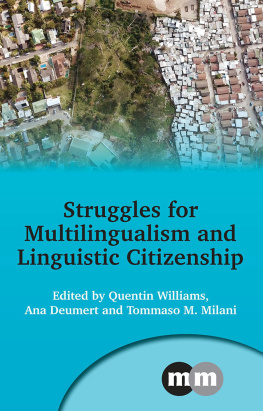
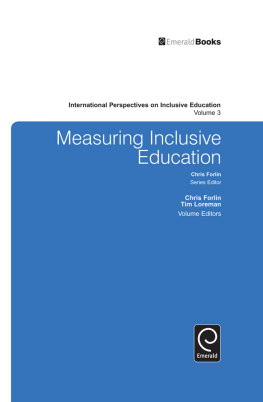
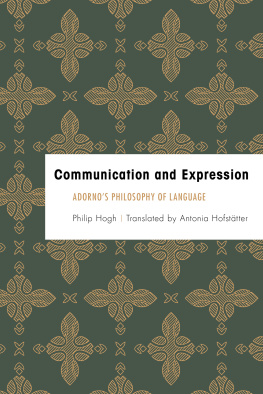
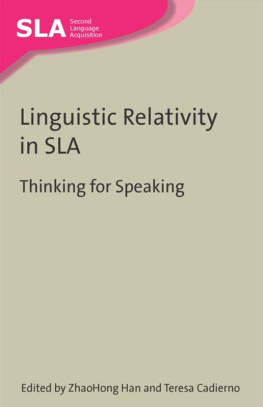
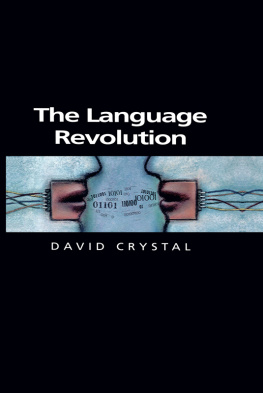

 The paper used in this publication meets the minimum
The paper used in this publication meets the minimum